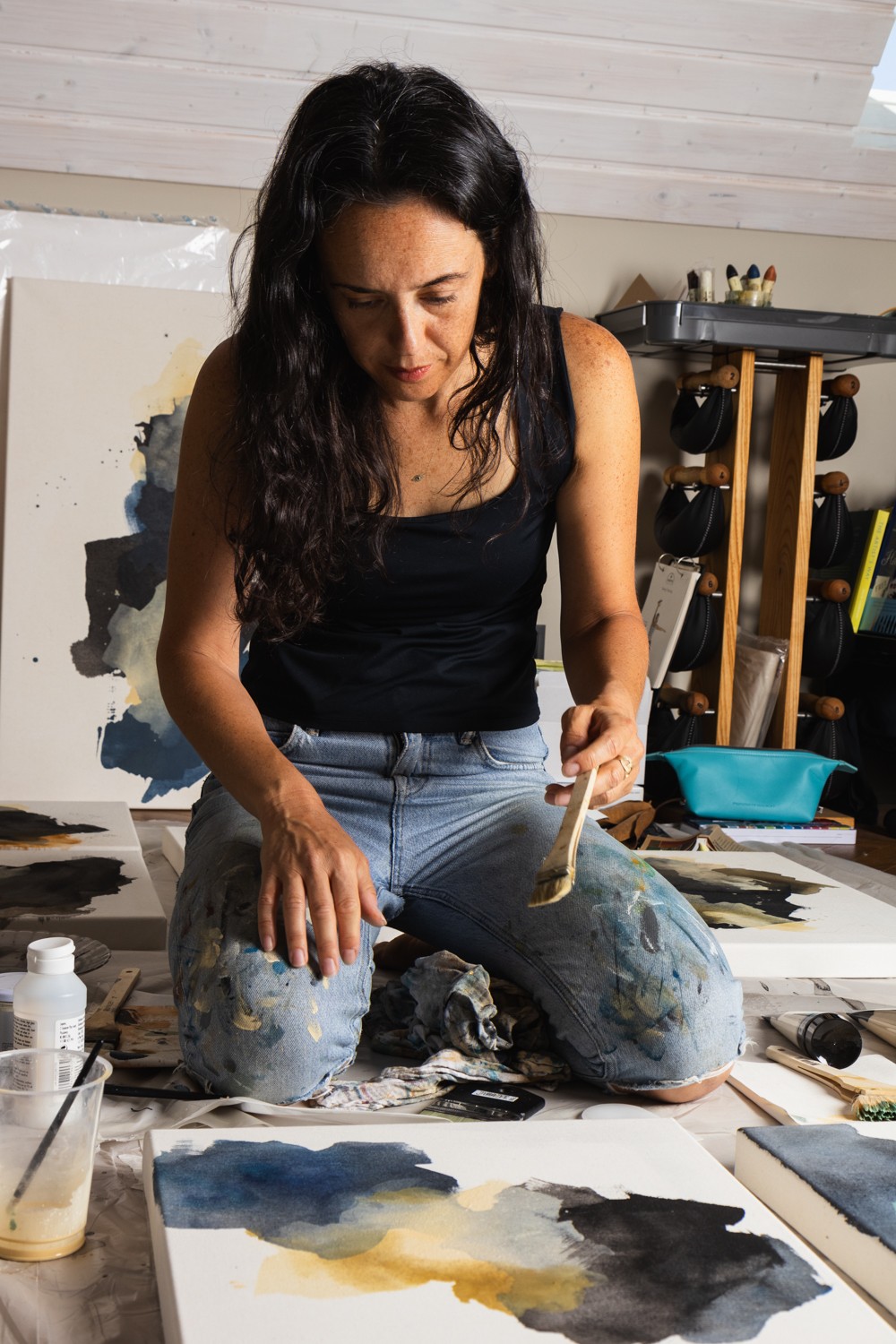We were lucky to catch up with Vered Brett recently and have shared our conversation below.
Vered , looking forward to hearing all of your stories today. We’d love to hear about the things you feel your parents did right and how those things have impacted your career and life.
Growing up in a Jewish religious home, my parents and environment allowed very little to no freedom at all. Despite not being able to express myself freely, or being encouraged to pursue my creativity, or even questioning our life choices as a religious family, I think that the best thing my parents did was to make sure my brothers and I get educated, no matter what. I am the oldest of 4 siblings, and the only daughter, and was always overly protected. My parents led a simple life, they worked hard to provide for us, and always made sure our physical needs were met. The most important thing for them was that we get our academic education and stay healthy.
Looking back, there are many things I wish I was taught as a child, such as communication, important life lessons, thinking independently, building my confidence, and so on. However, my ideas and thoughts were often dismissed, and at some point, I felt so misunderstood that I believed I was born into the wrong family. But even with all the restrictions a religious lifestyle brings with it, being able to read a lot and get the education I needed to feed my natural curiosity, enabled me to explore areas that my religious upbringing didn’t allow. Moreover, I think that the young rebel in me pushed even harder to discover what exists ‘outside’ the bubble I lived in. I learned that if I only wanted to, I could leave and find my own path.
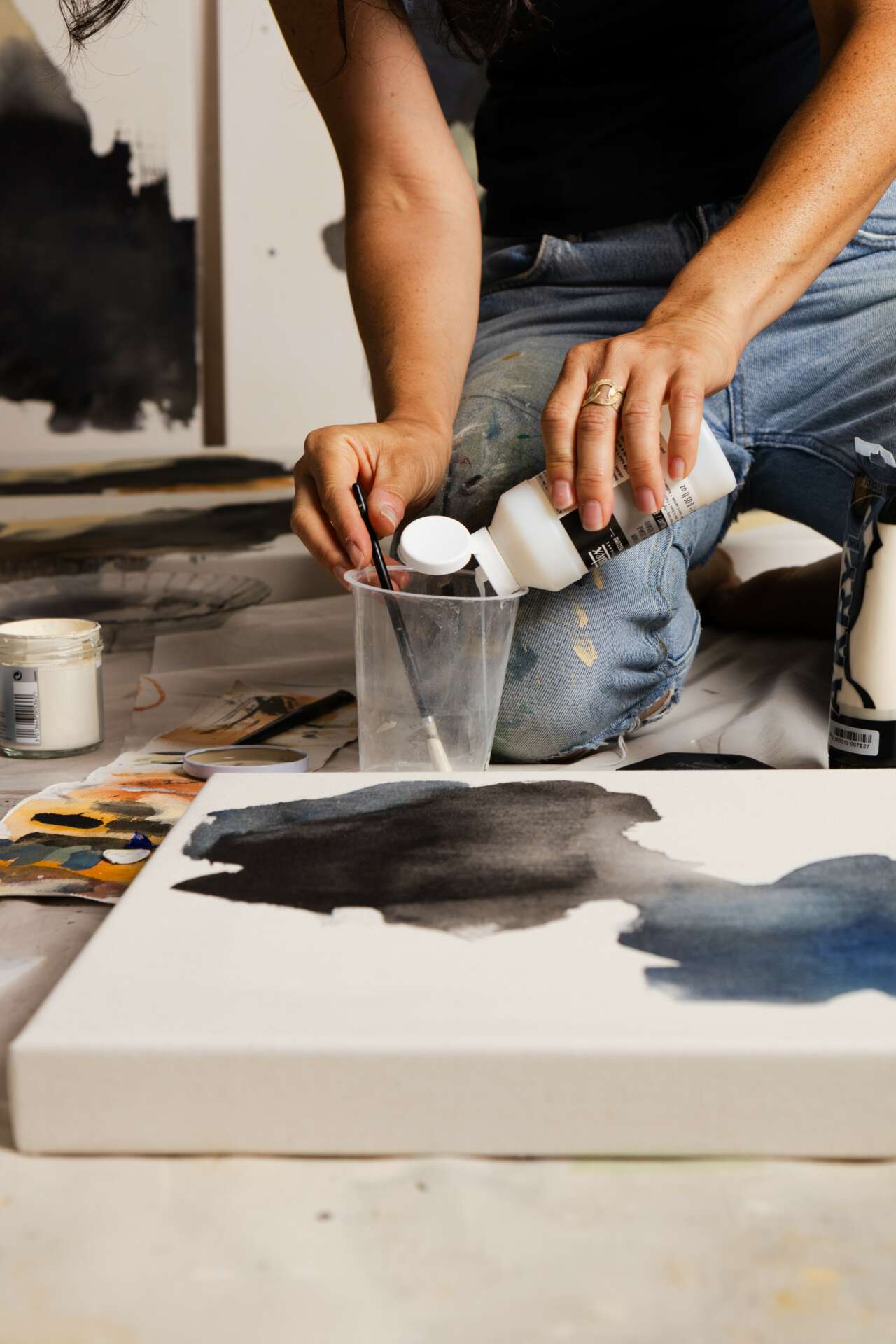

Vered , before we move on to more of these sorts of questions, can you take some time to bring our readers up to speed on you and what you do?
I believe artists are born, not made. It may take a long time to realize it, and taking the wrong turns in life, as happened to me, but if you search, you will get there. I was always drawn to art, I always created things, and art supply shops were (and still are) my happiest place to be. Most importantly, whenever I created, it always made me feel safe, at peace, and present.
But I was never encouraged to pursue a career in art, as happens often. Moving from Israel to the UK in 2014, working in marketing roles in various industries for too long, it was only after I became a mum for the first time in 2018, that I intentionally paused this pointless career chase, and decided to look inwards and figure out what it is that I really wanted to do. Taking a break from my ‘previous’ life, being on my own with a new baby, and having lots of sleepless nights to think validated for me that it was time for a massive life change (as I always knew in my heart).
It was right after I moved to Portugal in late 2020 that a random conversation with a mum from school woke me up. It was instant. I think this was possible because there was no noise in my head anymore, and that allowed space for me to hear the call to paint again. Only this time, I decided to try something new, which for me, was abstract art. Something I’ve never done or was even interested in. I wanted to challenge myself and I was curious about this unfamiliar territory.
It began just like that – I had all kinds of art supplies that I’ve been buying for years without a plan packed in boxes, so I just sat down, googled ‘abstract art’, and started painting. I was mesmerized by what the painting process was doing for me. The more I did it, the more I wanted to do it. I was thirsty for more, and often felt like I needed to make up for all those years of not painting. Very quickly, I realized I had so many questions so I applied to an art mentorship programme with Ty Nathan Clark in Texas, and was selected. That was the moment that changed my art journey forever and I felt that I found my right path. Finally,
I create abstract paintings on raw canvas and paper for residential and commercial spaces. My work is a curious exploration of the stories we carry with us throughout life. I create layers of paint that reflect the hidden and unknown moments we need to peel in order to see ourselves as we are and accept it. I believe that paintings are mirrors. When we look, we can recognize pieces of ourselves, of our stories, and of our emotions. My work invites viewers to embrace who they are, be fearless, be vulnerable, and love themselves.
I see a lot of art that is aesthetically appealing, but many times, there is no story behind it, and therefore, it feels empty and I can’t connect with it. Connection with other people is the most important thing, and what also drives my collectors to purchase my art. They see pieces of their own story in it. Allowing myself to share my own story, to show vulnerability, and openly talk about overcoming life’s obstacles, is what inspires others and draws them to me and to my work. I am always deeply moved by the emotional reactions of people who view my art, listening to their own stories, and finding that thread that connects us. This is ultimately what all humans are seeking – connection.
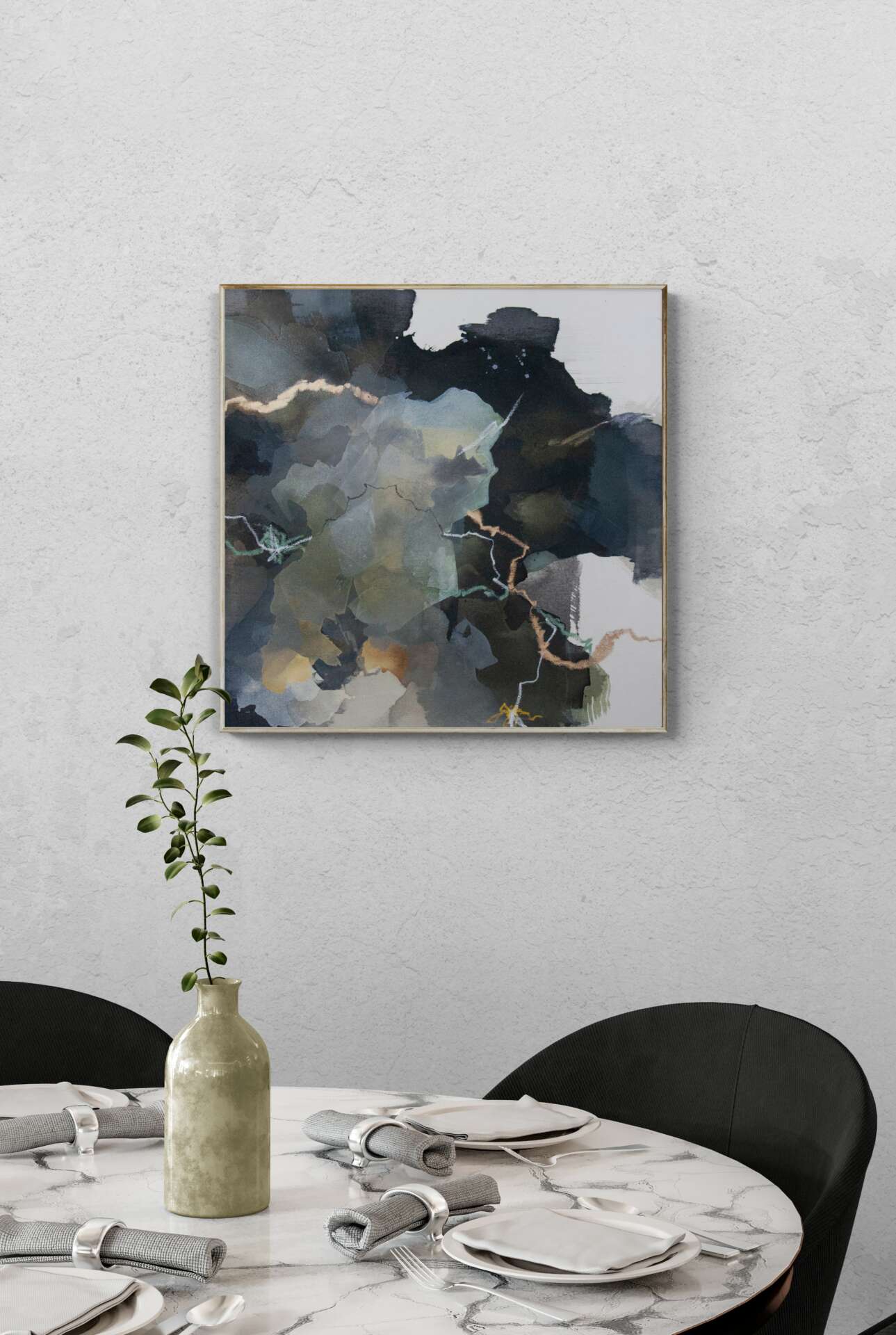
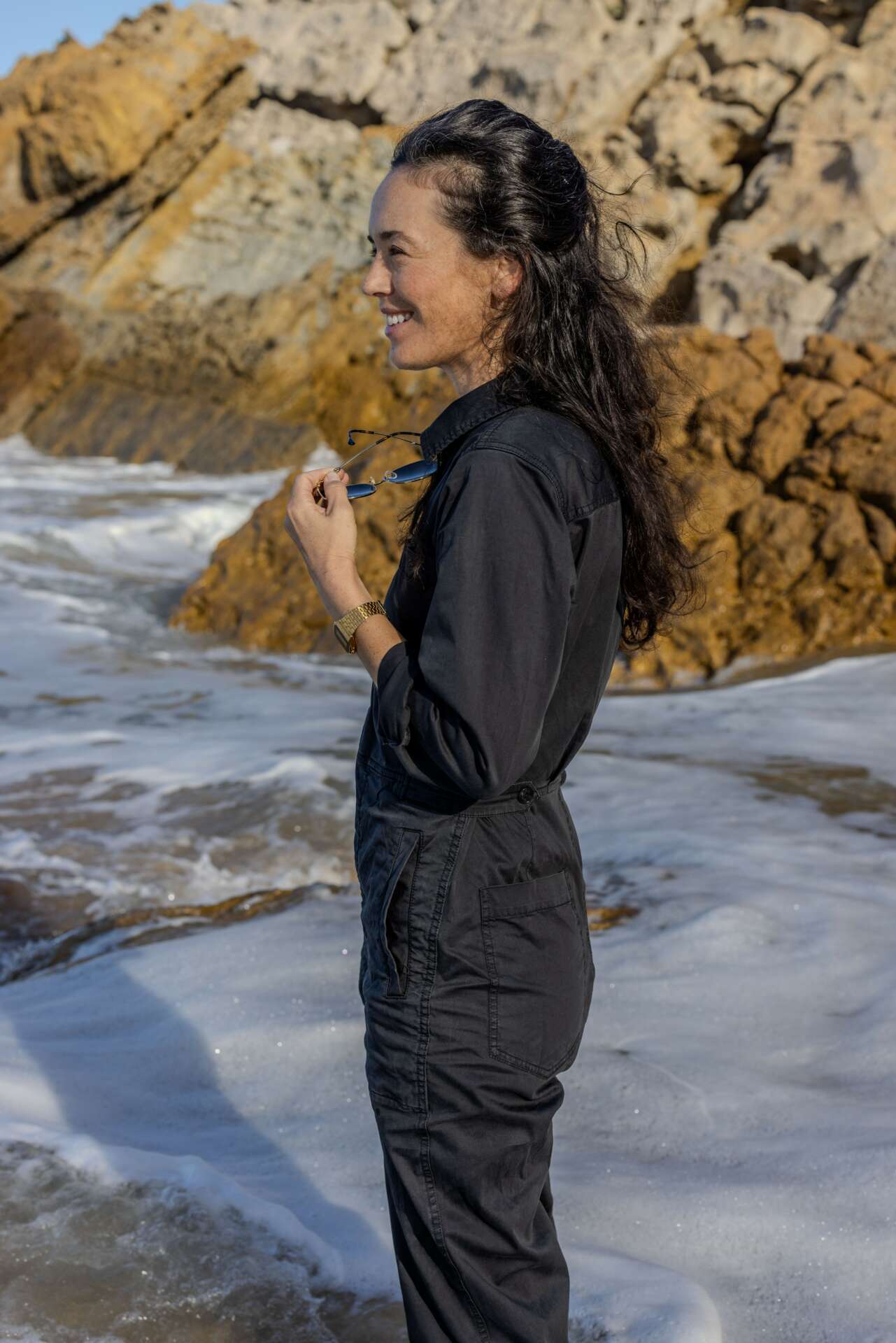
Learning and unlearning are both critical parts of growth – can you share a story of a time when you had to unlearn a lesson?
As soon as I started my new chapter as a full-time artist, I began sharing my work on social media, and for a long time, the pressure it put on my creativity and how I ran my business was terrible. When you start out, you get exposed to so many other artists who have started before you, sometimes many years before you, and very quickly, what you see in their journey is perceived as success. You often think that their ‘success’ should also be what your success looks like. Not only that vanity metrics on social media are misleading and give the impression that they are the goal or what paves the way to success, we often start to feel like we are in a competition with other artists. This is a perfect recipe for getting frustrated, killing creativity, and sometimes, even quitting altogether.
I used to scroll through Instagram, obsessively reading the captions of other artists, copying their hashtags (yup, I admit it! And hey – it never works), and feeling that I’m not good enough. The funny thing is it was never about my art and my skills as a painter, rather only about the exposure online. Which in a way, is a good thing that it wasn’t about my art – the core of being an artist.
It took some time, and a lot of discouraging days where I would just declare (to myself) that I’m leaving Instagram or being angry that no one is seeing my art online, until gradually, I forced myself to stop looking at Instagram as a hub for art, and rather, as a tool. One of many that I use to share my art with the world. Also, learning and reminding myself that I’m not competing with anyone, and that my journey is not a race, there is no finish line. My journey is only mine, my success is only mine, and it will look the way I want and shape it. I always quote Helen Frankenthaler who said that there are no rules in art. Go against them, break them, make up your own. This mindset shift changed everything in my studio practice and the way I run my business. And guess what? Many opportunities for exhibitions, sales and collaborations started coming from the real world.

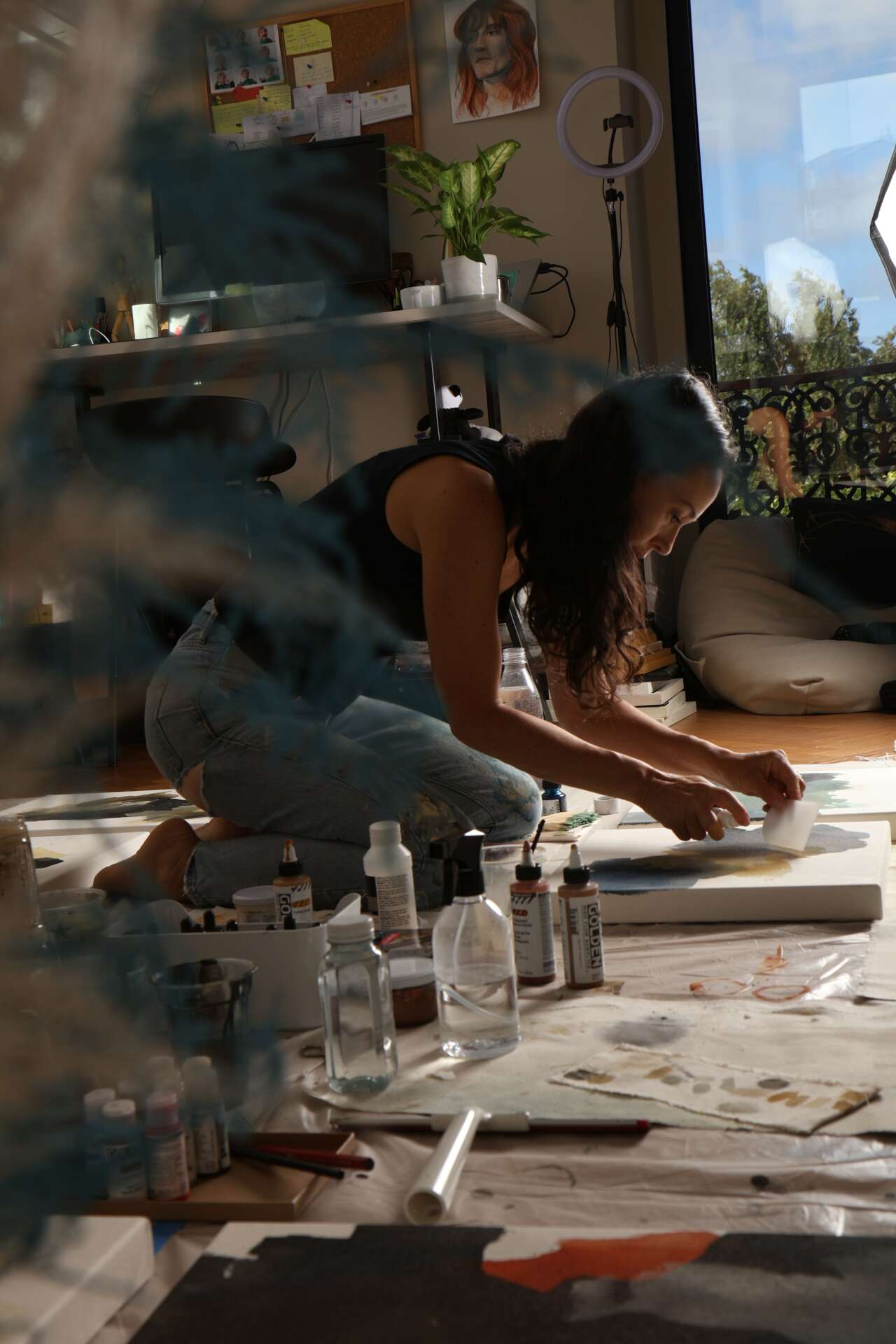
For you, what’s the most rewarding aspect of being a creative?
Wow, there are so many rewards in being creative and living one’s true passion. I suppose the biggest reward for me is that making my own art is a continuous healing process, where I allow everything to come out the way I want it to. There is no judgement in my studio, no time limit, no one is watching, I break the rules and don’t get punished for it, I exist in absolute freedom.
I guess this links to my other point about being in solitude as an artist, which is one of my biggest rewards. For most of my life, I had very little privacy. Imagine a small flat shared with 3 boys and my parents, always noisy and busy. Add to that my overprotective parents, and you get a young woman growing up with a fear of being on her own. I existed in this constant conflict of wanting to break free but fearing the outside world, knowing I need more, but not knowing how to get it.
Eventually, this pushed me to be independent and to be comfortable being on my own. That was never easy. But becoming an artist taught me to enjoy and embrace my solitude. Being on my own is now so liberating and something I crave for when I don’t have it. Probably because now it’s a conscious choice that also feels safe. Or perhaps my way of proving to myself that I got out of the shell.
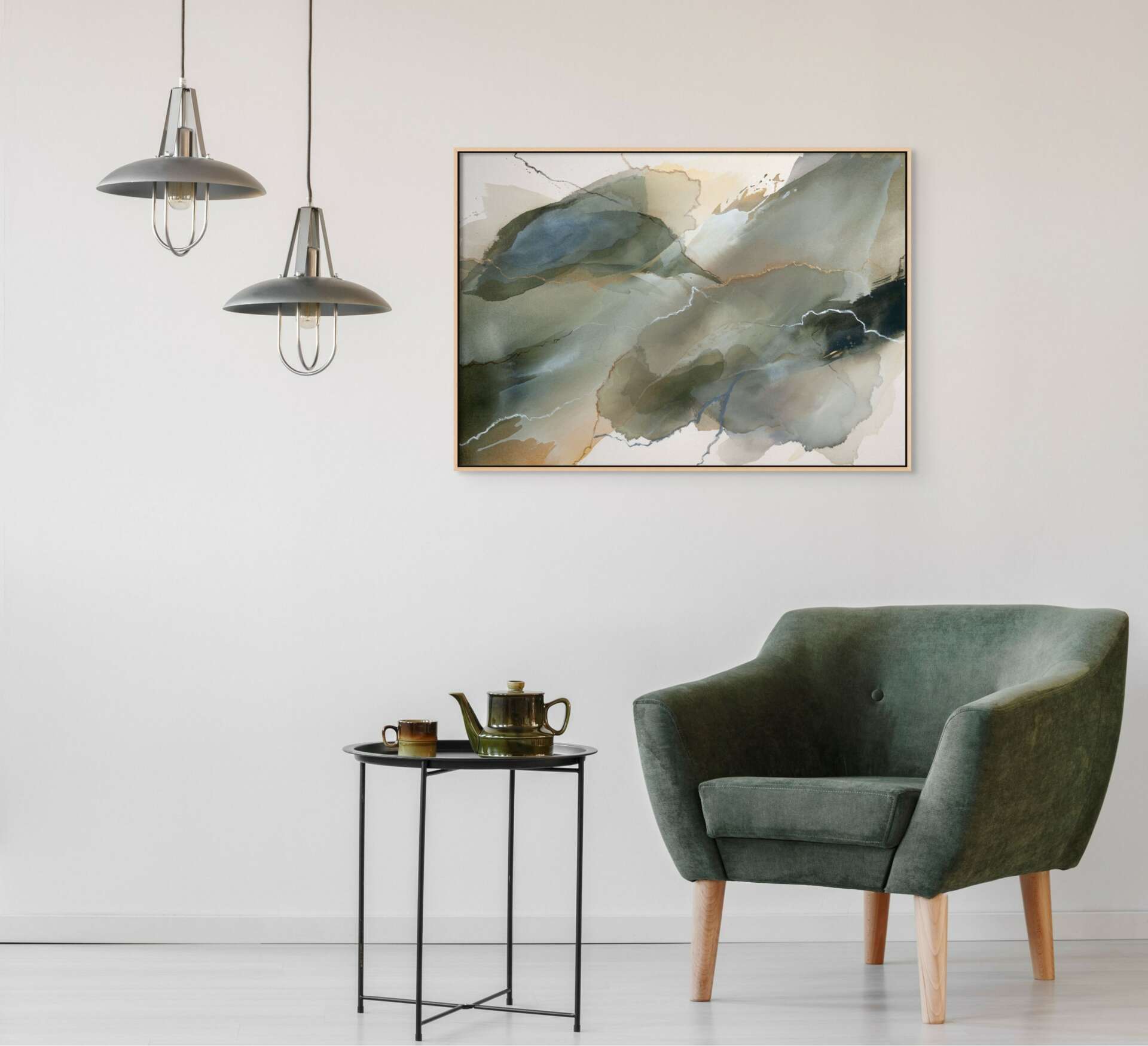
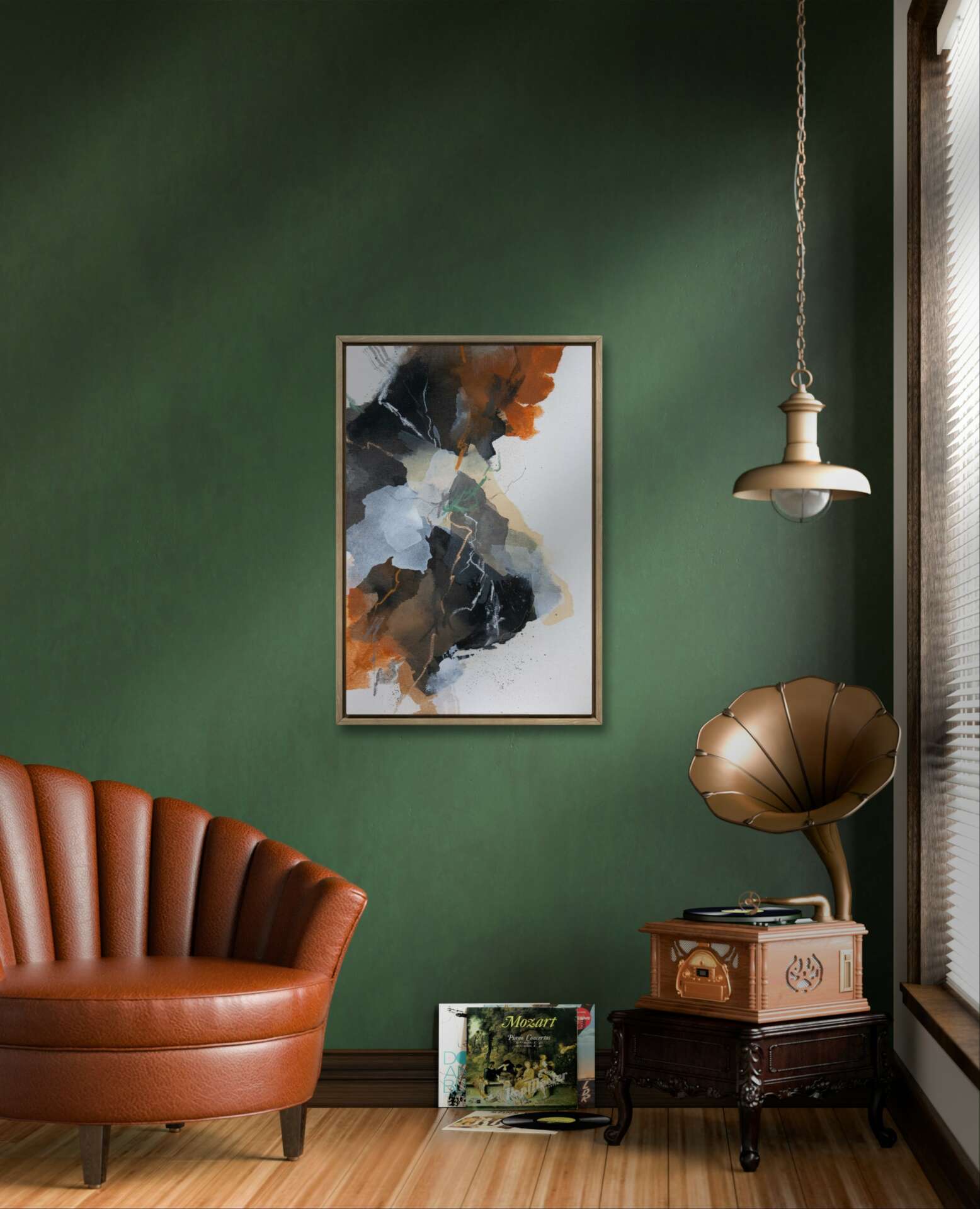
Contact Info:
- Website: www.veredbrett.com
- Instagram: www.instagram.com/veredbrett
- Facebook: https://www.facebook.com/veredbrettart
- Linkedin: https://www.linkedin.com/in/vered-brett/
- Other: Guest at Artinorbit podcast: https://open.spotify.com/episode/5K9hZAE2v7NvGCRAKV6gdf?si=1589501ab29943c3 Guest at Vivid Creative podcast: https://open.spotify.com/episode/6y8LXOh2p6wZWgnDzZtvBP?si=6c7894a228d74c02


